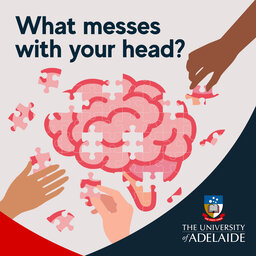 What Messes with your head
What Messes with your headVideo games: Could they improve mental health?
What messes with your head?
There are a lot of things that can make life difficult as a student, but you aren’t alone! Listen in to hear from current students who share thought-p…Firmly held beliefs about video games helping or hindering mental health have always existed. While many people may view video games as antisocial, and something that negatively affects mental health, is this truly accurate? John and Steph discuss how video games have affected their own mental health, whether there is a point where games become unhelpful, and the many factors that affect where that tipping point lies.
Research used for this episode:
https://www.liebertpub.com/doi/pdf/10.1089/cyber.2021.0252
https://www.japantimes.co.jp/news/2022/12/18/national/social-issues/video-game-addiction/
https://www.nippon.com/en/japan-data/h00599/amp/
https://www.ipe.com/current-edition/briefing-japan-emerging-from-its-invisible-lockdown/10049837.article
https://en.m.wikipedia.org/wiki/COVID-19_lockdowns_in_Italy
http://matthewbarr.co.uk/bartle/
https://www.verywellmind.com/coping-with-emotions-with-distraction-2797606
https://www.psychologyofgames.com/2016/07/why-do-achievements-trophies-and-badges-work/
https://stars.library.ucf.edu/cgi/viewcontent.cgi?article=2826&context=etd
https://ludogogy.co.uk/achievements-in-games/
https://www.liebertpub.com/doi/abs/10.1089/cyber.2020.0027
https://games.jmir.org/2021/2/e26575
-------------
Have thoughts or suggestions for the show? We’d love to hear them at: studentwellbeing@adelaide.edu.au
This podcast was created by employees of the University of Adelaide for the University, however the views and opinions expressed on the show are those of the individuals, not the University itself.
